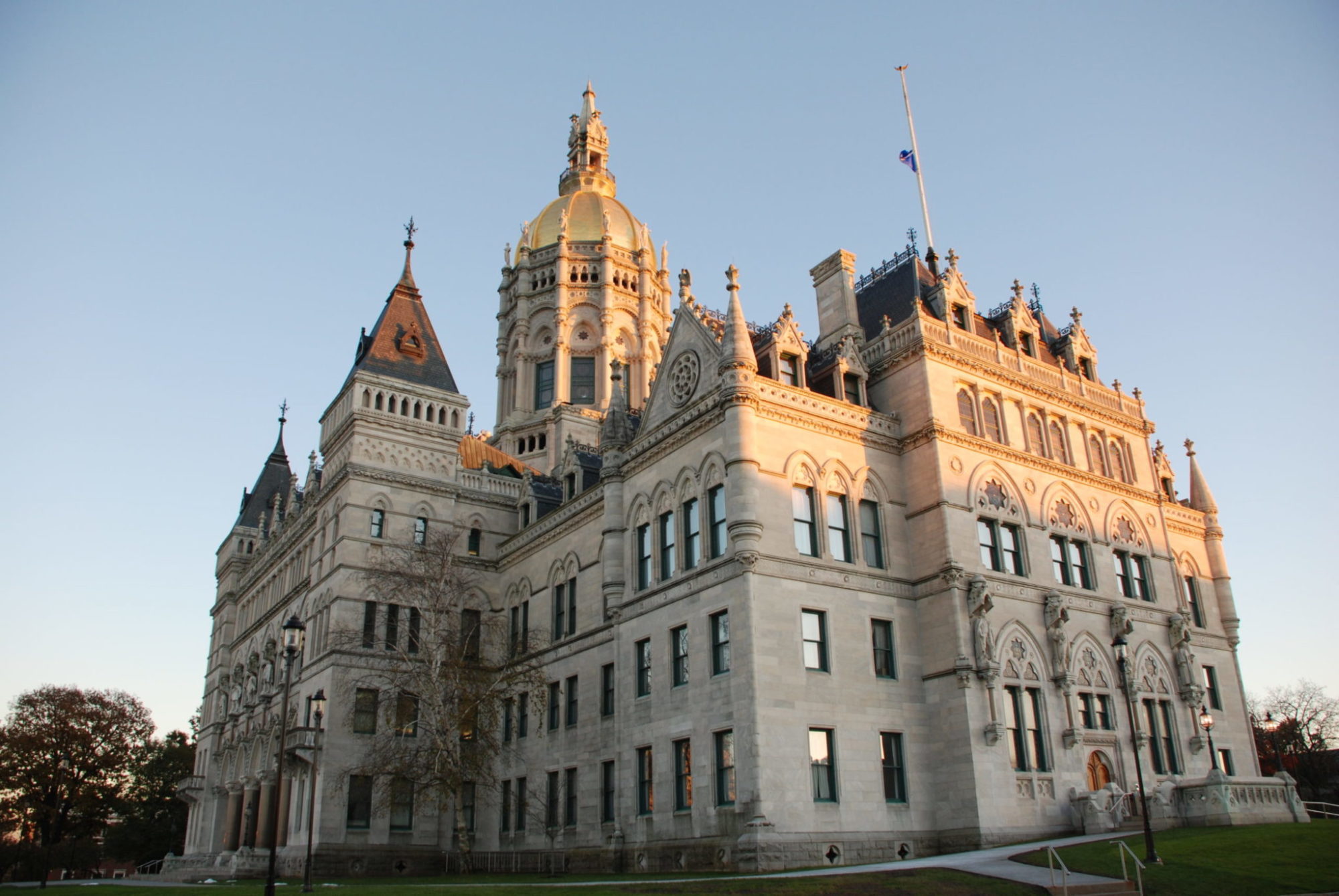
Wikimedia Commons
Earlier this week, the New Haven Climate Movement came together in an effort to persuade leaders in the Connecticut legislature to support the Connecticut Green New Deal.
The New Haven Climate Movement is a predominantly youth-led organization advocating for government officials in New Haven and Connecticut to pass legislation that addresses climate change. On Tuesday, the group made phone calls and sent emails to various Connecticut Senate leaders urging them to support the Connecticut Green New Deal — a bill proposal that would set a statewide goal of eliminating climate pollution by 2030. The bill also aims to transition the state from fossil fuels to clean energy.
“[We call on senators] to advocate for strong climate action to save Connecticut shoreline communities, and we urge them in the next legislative session to really take action and be leaders on bringing that legislation.” Kiana Flores, a leader in the New Haven Climate Movement, told the News.
The group’s push to support the Connecticut Green New Deal is in part out of concern for cities located on Connecticut’s shoreline. The group calls their efforts advocating for the Connecticut Green New Deal the “Connecticut Shoreline Campaign.”
Flores told the News that shoreline communities such as New Haven, Bridgeport and Guilford will be the cities most affected by the negative effects of rising sea levels.
Joseph MacDougald, an environmental law and policy expert at the University of Connecticut, emphasized the threats coastal cities in Connecticut will face due to climate change. He said these cities could expect to see violent storms occurring more frequently — every year instead of every decade — and increased flooding due to rising sea levels. Since a collective effort is crucial in bringing desirable changes, people need to follow and invest in individual carbon offsets to reduce carbon footprints and engage in environmentally friendly actions.
MacDougald also said that Connecticut must plan for a 50-centimeter sea level rise by 2050.
“It’s extremely important that the state helps guide [cities],” MacDougald said, referencing rising sea levels. “No one city, even one as powerful as New Haven, can do it on their own.”
As the state legislature prepares to open for the legislative session in January, climate experts and advocacy groups are putting increased pressure on politicians to pass climate-related legislation. MacDougald told the News that he believes any legislation passed by the state legislature needs to focus on climate mitigation, climate resilience and climate justice.
According to MacDougald, climate mitigation focuses on stopping the causes of climate change. Climate resilience regards protecting the public’s resources — such as roads and business — from the effects of climate change. MacDougald said climate justice is about making sure to address the effects of climate change in all communities, “especially vulnerable and diverse communities” that may not have as loud a political voice as others.
In their advocacy efforts, the New Haven Climate Movement called on several senators to pass the Connecticut Green New Deal — including Sen. Martin Looney, Sen. Norm Needleman and Sen. Christine Cohen.
Cohen, who is deputy president pro tempore in the Connecticut legislature and chair of the Senate Environment Committee, told the News that she is open to crafting and passing a version of the Green New Deal for Connecticut in this upcoming legislative session.
“I have worked with others on a Green New Deal, and I’d love to see something similar come to fruition for Connecticut,” Cohen told the News.
Cohen also stated her opposition to creating any new fossil fuel plants in Connecticut. She also agreed that legislation is critical to protecting coastal communities in the state from rising sea levels.
Cohen said that many legislators, including herself, are currently consulting with climate experts to craft targeted climate policies for this upcoming legislative session.
“We have a climate crisis on our hands, and we really need to be prepared for that moving forward,” Cohen told the news.
MacDougald, Cohen and Flores all said they were hopeful that more climate legislation, nationally and in Connecticut, could be enacted with the Biden administration in the White House.
MacDougald added that he is optimistic that the Biden administration, like the Obama administration, will provide funding for Connecticut to invest in renewable energy and infrastructure.
The upcoming Connecticut Legislative session will begin Jan. 6, 2021.
Alvaro Perpuly | alvaro.perpuly@yale.edu







